Valley of Fire - Nevada’s Oldest State Park
(Blurry Video? Click the gear to change the quality to full 1080p HD)
In this adventure, we visit Nevada’s oldest state park, the Valley of Fire. This 40,000-acre park is home to beautiful red Aztec sandstone outcrops nestled in gray and tan limestone that were formed by ancient sand dunes dating back to the Jurassic period. The Basketmaker culture were the first people to occupy this area some 2,500 years ago. The remnants of these occupations can be seen through the many petroglyphs located throughout the park.
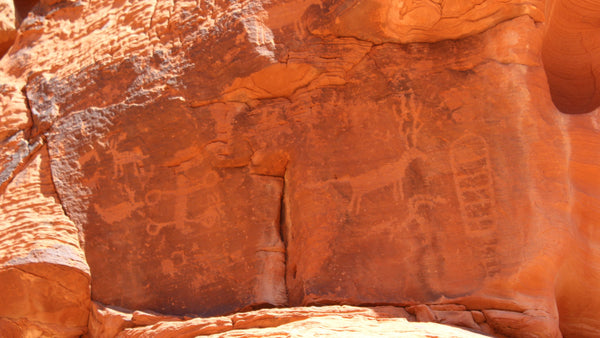
Visitors to the park can enjoy many outdoor activities such as hiking, sightseeing, camping, and, if you are lucky, views of the resident bighorn sheep. There are several hiking trails that will lead you through the red rock scenery and provide up close views of the Native American Rock Art. Here are a few of the trails we enjoyed on our visit.
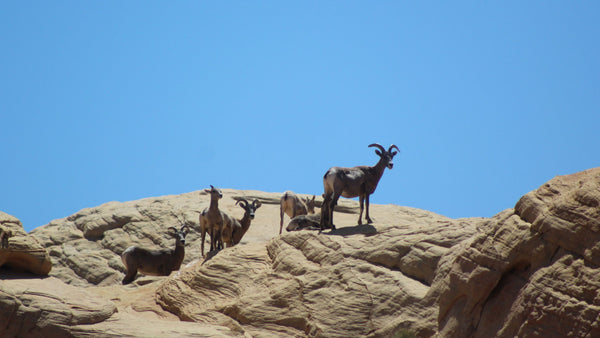
Elephant Rock:
The Elephant Rock Loop is the very first trail you will discover as you enter the park on the east end. This trail is a great way to start your day and provides you with a little glimpse of the beautiful scenery to come. The trail is named after a large elephant shaped red rock. The whole loop is 1.2 miles, but the elephant is just a short distance from the trail head. Because this is the first pullout with restrooms, the small parking area can get very crowded. We had to wait a few minutes to get a parking space.
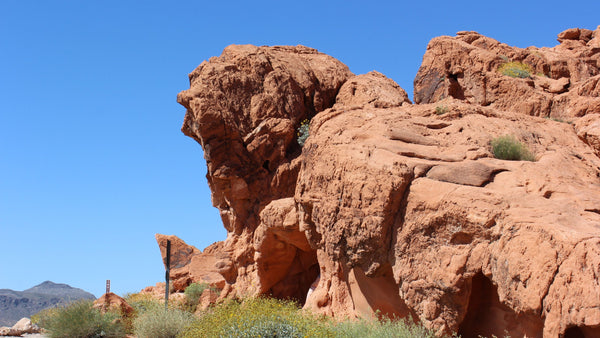
Mouse’s Tank Trail:
The Mouse’s Tank trail is 0.7 miles in length and meanders its way through a sandy red rock canyon with beautiful scenery on both sides of the canyon. This trail allows hikers to get up close to many Native American Rock Art Sights. Because of the numerous rock art found in this canyon, it is known as Petroglyph Canyon. The trail itself was named after a Southern Paiute Indian named “Little Mouse” who used the Valley of Fire as a hideout in the 1890s after he was accused of killing two prospectors and various other crimes in the area.
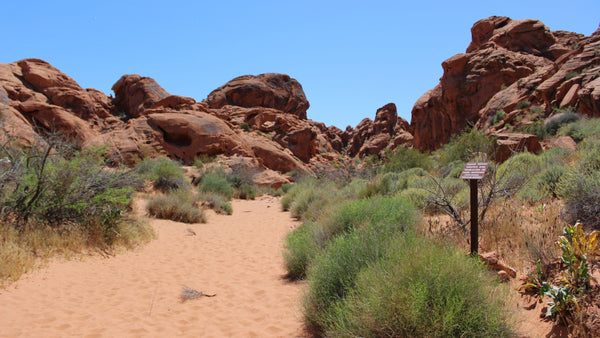
The Mouse’s Tank is a natural basin in the rock where water collects after each rainfall and can be found at the end of the trail. Please get up close to the Petroglyphs but don’t touch the rock art. The oils from your hands can darken and even destroy the carved image.
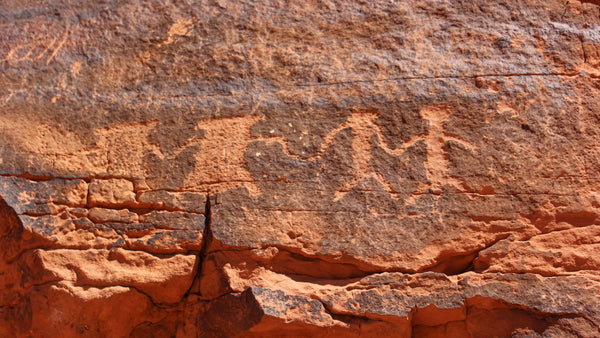
Atlatl Rock:
An atlatl is a tool that uses leverage to achieve greater velocity when throwing a spear. The rock was named after the petroglyphs that depict the Native Americans using this primitive weapon for hunting. The rock art is located high up on a cliff face and requires a walk up a large staircase. This adds to the adventure and provides views of the surrounding area.
The Atlatl Campground is in this area as well. The campground offers 43 campsites that are equipped with shaded tables, grills, water, and restrooms. Campsites are on a first come, first served basis a fill up quickly during the park's peak season, which is February through May.
Planning Your Visit:
The Valley of Fire State Park is open 365 days a year. The peak season for the park is February through May because of the mild winter temperatures. During the winter months, the park can experience temperatures from freezing to 75 degrees. During the summer months, temperatures often exceed 100 degrees to as high as 120 degrees.
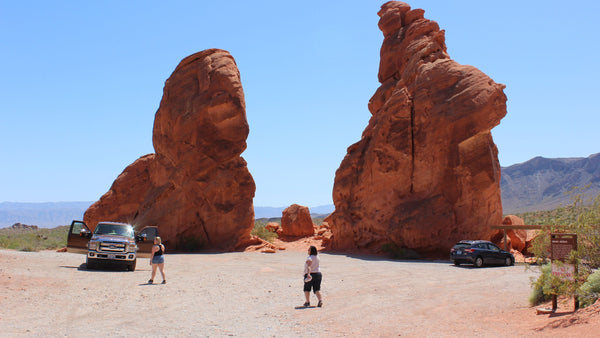
If you plan on enjoying the many hiking trails, be sure to bring a hat, sunscreen, and plenty of water. Use caution on rainy days, especially in the summer months, as this area is a desert environment and flash floods may occur.
Dogs are allowed in the park, but they must always be kept on a leash. Also, please remember that our fury friends will get hotter faster than us, and they must have lots of water available to them as well.
If you find yourself traveling to Mesquite or Las Vegas, take a side trip to the Valley of Fire State Park. We guarantee the scenery will be far more beautiful.
Contact Information:
Valley of Fire State Park
P.O. Box 515
Overton, NV 89040
Phone: 702-397-2088
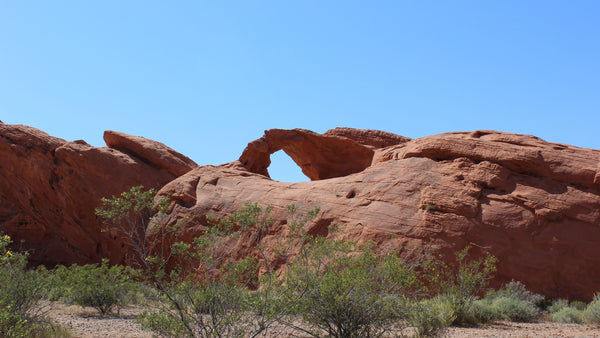





Leave a comment